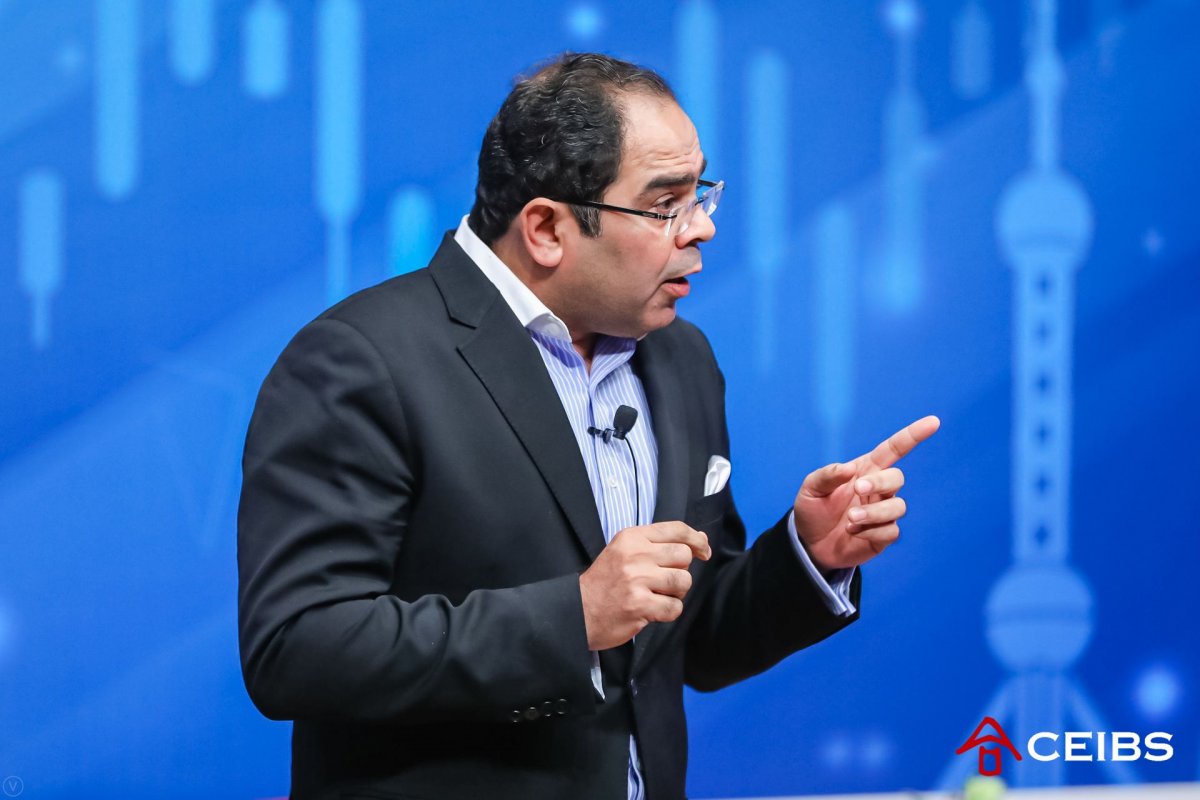Capitalism 2.0: China’s Role in Impact Investing
November 17, 2018. Shanghai – What will be China’s role in the “$26 trillion impact sector that is turning the economic system on its head?” That was the question Amit Bhatia, CEO of the Global Steering Group for Impact Investment, left with the audience after his keynote speech during today’s CEIBS Global Impact Investing Forum. His audience included mainly alumni of China’s leading international business school, CEIBS, who are on campus for their annual reunion over the next two days. Bhatia challenged them to think about the role they – and China – can play in the impact movement that has its sights set on repairing the societal and environmental damage done by capitalism 1.0, as we move forwards the more equitable 2.0 version.
“An impact revolution and impact movement is possible because $26 trillion is not to be scoffed at,” he said. Conceding that version 1.0 – where tech enterprises held sway over global capitalism for three decades – had significantly improved quality of life, he also pointed out that it had made the poor poorer and “it is devastating the planet”.
“It works for the 1%, it doesn't work for the 100%,” he said. His company, GSG, describes itself as an independent global steering group catalysing impact investment and entrepreneurship to benefit people and the planet. During his speech, Bhatia cited the billions of dollars invested by countries around the world as a show of global support for the “movement”. He also listed three traits – shared by all previous successful movements – which he pointed to as signals that this initiative is “on the right side of history”. The impact movement, like other successful ones before it, he said, will “restore justice or balance”. He also noted that it is “replicable and reinterpretable” saying it is clear that “profit and purpose are here to coexist”. His third point was that the movement is inclusive, bringing together private and public markets, big business and small start-ups, and other players typically on opposite sides of the fence. “The revolution we are talking about has these core characteristics that ensure it will end up on the right side of history,” he said. “We have a unique opportunity to build a world where capitalism is more human, a rare opportunity to make sure capitalism 2.0 works for the whole – not just the 1%. Our role is to work together to make sure capital finds its highest purpose.”
Earlier in the day, during his welcome address, CEIBS President Li Mingjun spoke about the role the school can play in addressing the negative fallout (such as the gap between rich and poor) from China’s rapid – and overall positive – economic growth and technological innovation. There is now increasing recognition, he said, that improving the well-being of people's livelihood is the fundamental purpose of economic development and efforts are underway, in various sections of the society, to gradually make the changes needed. “Today's themes – impact investment, responsible investment, etc. are the best evidence of this,” he said. “With the rise of social enterprise in China, the development of impact investment has fertile soil [in which to grow].” In his view, impact investing is an effective way for modern enterprises to fulfil their social responsibility and help sustainable development, traits that CEIBS has long advocated. “While realizing the creation of wealth, we will continue to promote economic development and social progress. CEIBS will continue to increase investment in research and education in this area,” said President Li.
The education sector’s role – along with that of other non-governmental players – was also explored by Ma Weihua, former President of China Merchants Bank turned philanthropist. Ma is currently Chairman of China Alliance of Social Value Investment and China Global Philanthropy Institute. “Now there is a gap between pursuit of better lives and unbalanced development, issues that will be addressed through supply side reform,” he said. “The government has made substantial investment in this regard, but we cannot rely on only government efforts. There is a big need for public goods and services, for example in the educational and health care fields. We need to pool the efforts from different areas of society.”
He also made the point that impact investing is in line with China’s five big overarching goals (innovation, coordination, green environment, openness, sharing) that will be the driving force behind the country’s transition from merely rapid growth to high quality development. It is no surprise, therefore that impact investing is becoming increasingly popular in the country. According to Ma, efforts are now being made to roll out standards, enhance communication between the government and other players, along with providing mechanisms for enhanced information sharing. “We want to build a good ecosystem and then we will have a better environment for impact investing,” he told the audience of CEIBS alumni representing a wide range of industries. “I hope you can join in this initiative.”
The issue of China’s role was further explored in the panel discussion that followed. (See related story here).
Today’s forum was geared towards providing participants with an understanding of global impact investing trends, an overview of sustainable and systematic structures of global impact investment, as well as China’s potential leadership role in impact investing and sustainable finance. It also included the release of the 2018 CSR Index of Listed Companies in China. (See related story here).















